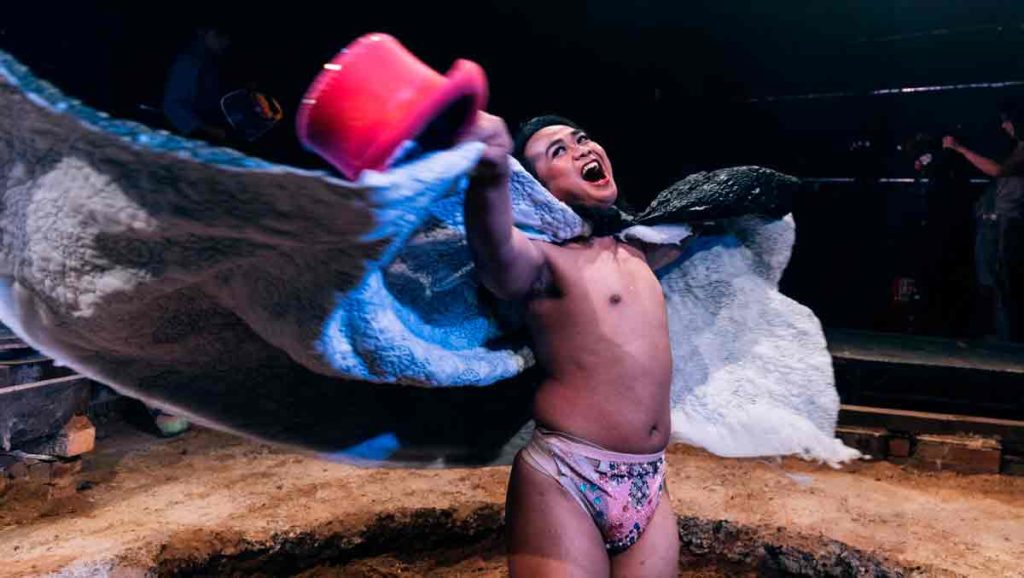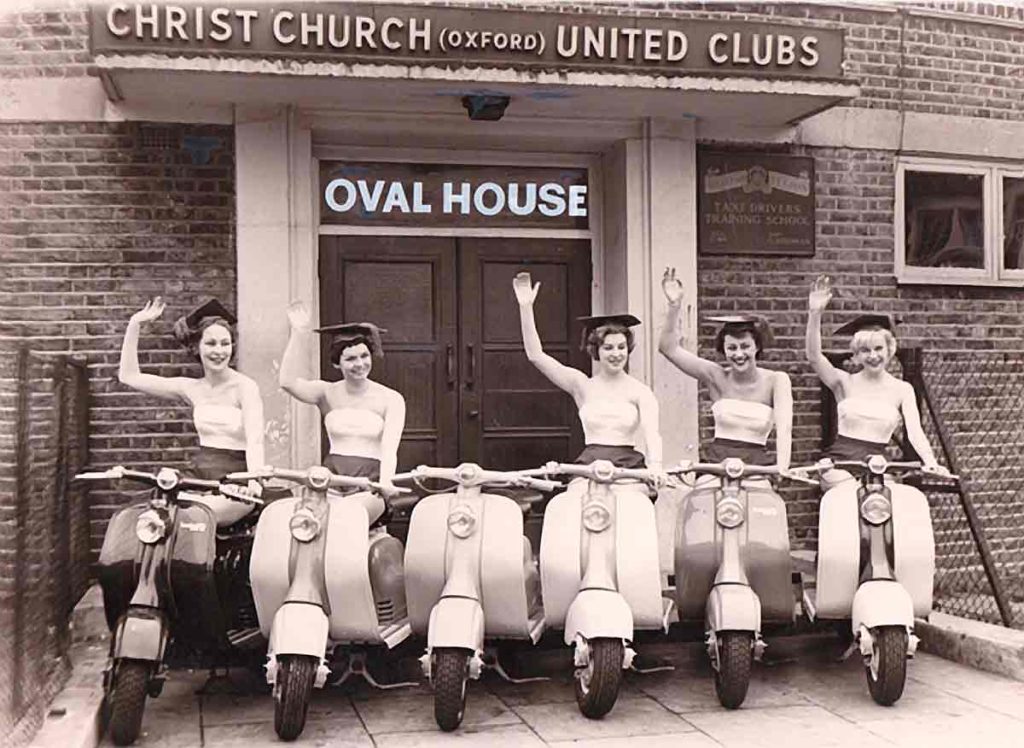Anetha Sivanathan surveys the final season of Lambeth’s historic theatre, Ovalhouse, before its move from its home of 50 years to Brixton

ImageRosie-Powell
For its last performances in Kennington, Ovalhouse’s Demolition Party Season will see collaborations between engineers and theatre companies to allow artists to dismantle parts of the building and take part in convention-defying, creative performances.
We Dig
, led by Emma Frankland and a global cast of trans artists, last month compelled audiences to focus on the international genocide trans individuals face.
In Kissing Rebellion [Friday 15 November to Saturday 30 November, 7:30pm] Carolyn Defrin and Abigail Boucher will explore both personal and political heartbreaks, leading off from the message generated following the 2015 Paris attacks: “Il va falloir beaucoup, beaucoup, beaucoup d’amour”- “It’s going to take a lot, a lot, a lot of love.”
“Ovalhouse has been an extraordinary space that has allowed artists to make extraordinary things happen for the past 80 years,” says Owen Calvert-Lyons , head of theatre and artist development at the theatre.
“Now it’s time to give those artists a new venue and better resources so they can make more extraordinary art and better experiences for audiences.”
Calvert-Lyons says Ovalhouse has been looking to relocate for a number of years and that the new Brixton site at the junction of Coldharbour Lane and Somerleyton Road provides an opportunity to “belong to a busy part of London where people are searching for great cultural experiences”.

Other highlights in the Kennington theatre’s penultimate season include Rachel Marks and Greg Wohead’s Gaping Hole (Story #3) [Friday 8 November to Saturday 23 November, 8pm] which follows a wrongly convicted Andy Dufresne digging a tunnel to freedom from his prison cell; however, the tool he uses to cover the tunnel stirs confusion and ambivalence towards the protagonist in the performance’s closing.
Ovalhouse’s new Brixton site will include seven rehearsal rooms that can be used all year round for community activities, to train young people and work with them to organise production performances.
Calvert-Lyons says: “We have an associate artists programme and we have a young associates programme.
“It’s about training young artists across all sorts of disciplines. So whether they are performers or facilitators or designers or directors or writers or producers – all of those artists work with us now and we support and develop them and that will continue to be the case in Brixton.”
Ovalhouse will be closed throughout 2020 and its new building is due to open in early 2021. But it will will be organising pop-up production performances around central Brixton in the summer of 2020 – dates will be confirmed in Spring 2020.
For more information about the theatre’s last season at Kennington, visit: ovalhouse.com/whatson for other enquiries contact: 020 7582 0080.
Ovalhouse history
Ovalhouse has hosted experimental and radical theatre and overlooked artists for the past 50 years, and over that period has seen its social and artistic ideals become widely accepted as the model for a better society.
“We have sheltered social and political movements staffed by the stage and screen stars of the future,” it says, “pursued an unerring agenda for positive artistic, political and social change and, once, stabled a donkey in the Theatre Upstairs.
“Ovalhouse stands on a proud history and continues to be a vital home for boundary-pushing art and artists with an eye on the future.”

Ovalhouse traces its roots to the 1930s and the foundation of Christ Church (Oxford) United Clubs, by graduates of Christchurch College, Oxford.
Young people from disadvantaged areas in South London were able to use the space for sports activities and were taken on awaydays along with skills training.
Ovalhouse has pioneered enabling forms of education and artistic endeavour ever since.















